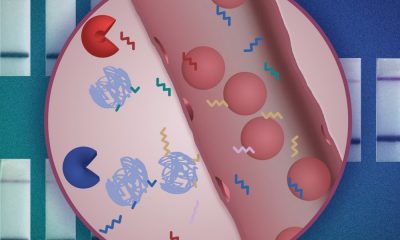Grace Garcia never imagined how a simple manicure would lead to her cancer diagnosis.
The 50-year-old shared her story this week via FOX 11, saying she had a manicure in November 2021 and did not expect it would lead to a living nightmare.
According to Garcia, she tried to book an appointment at her usual salon right before Thanksgiving, but it was not available. She then decided to visit a different salon near her workplace.
The San Gabriel, California resident said the employee who did her manicure was “aggressive” while doing her cuticle on her right ring finger.
Once the cosmetic beauty treatment was done, she said her finger looked “raw,” and it “hurt a lot.” She also recalled that there was some sort of a “blister” that wouldn’t heal afterward.
Garcia believed the technician might have used the same set of tools on another client before her.
“She probably used the tool on a previous person. I have no idea. It sprouted, whatever the thing was on my hand. … It popped up,” she told Today.com in another interview.
“It looked like a wart, and I’m like, ‘What in the world is this?” she added.
When she returned home, she put antibiotic ointment on her wound. But when it got worse, she returned to the salon to inform the management of the employee’s mistake.
To her surprise, the salon said the nail technician already got fired due to several complaints from other customers.
“I was upset, and I went back, and I told them that lady cut me, and my finger is still bothering me. They said, ‘Oh, we fired her (after) a lot of complaints.’ That was it,” she said.
Worried about why her finger was not healing properly after three months, she sought help from a doctor who referred her to a dermatologist for a biopsy.
Almost immediately after she visited the dermatologist, Garcia received an ominous call, and she knew things were not going well for her.
“On my way to the car, he called me. That scared me. He said I need to come back,” she recalled.
When Garcia was forwarded to UCLA to see Dr. Teo Soleymani, a specialist, she was informed that she had squamous cell carcinoma, possibly triggered by her manicure.
Squamous cell carcinoma is a type of skin cancer that develops in the squamous cells in the middle and outer layers of the skin. Though not life-threatening, the condition can be aggressive, according to Mayo Clinic.
Dr. Soleymani told FOX 11 that he’s only seen a handful of cases caused by manicures.
“Rarely do we see high-risk squamous cell carcinoma arising from this, but I have had half dozen with this phenomenon,” he said.
Garcia was diagnosed with Stage 1 cancer. Dr. Soleymani said she’s fortunate that she was able to seek medical attention early enough, or she might have ended up having her affected finger amputated.
“Her persistence, not only was she able to have a great outcome, she probably saved herself from having her finger amputated,” said the specialist.
Garcia had a surgical procedure that allowed her doctors to get all of the cancer out without removing too much skin. Dr. Soleymani said it has a “high cure rate.”
“I fought all the way from day one because I knew something was wrong,” Garcia said. Her finger may be back to normal, but she admitted that she feels traumatized.
















